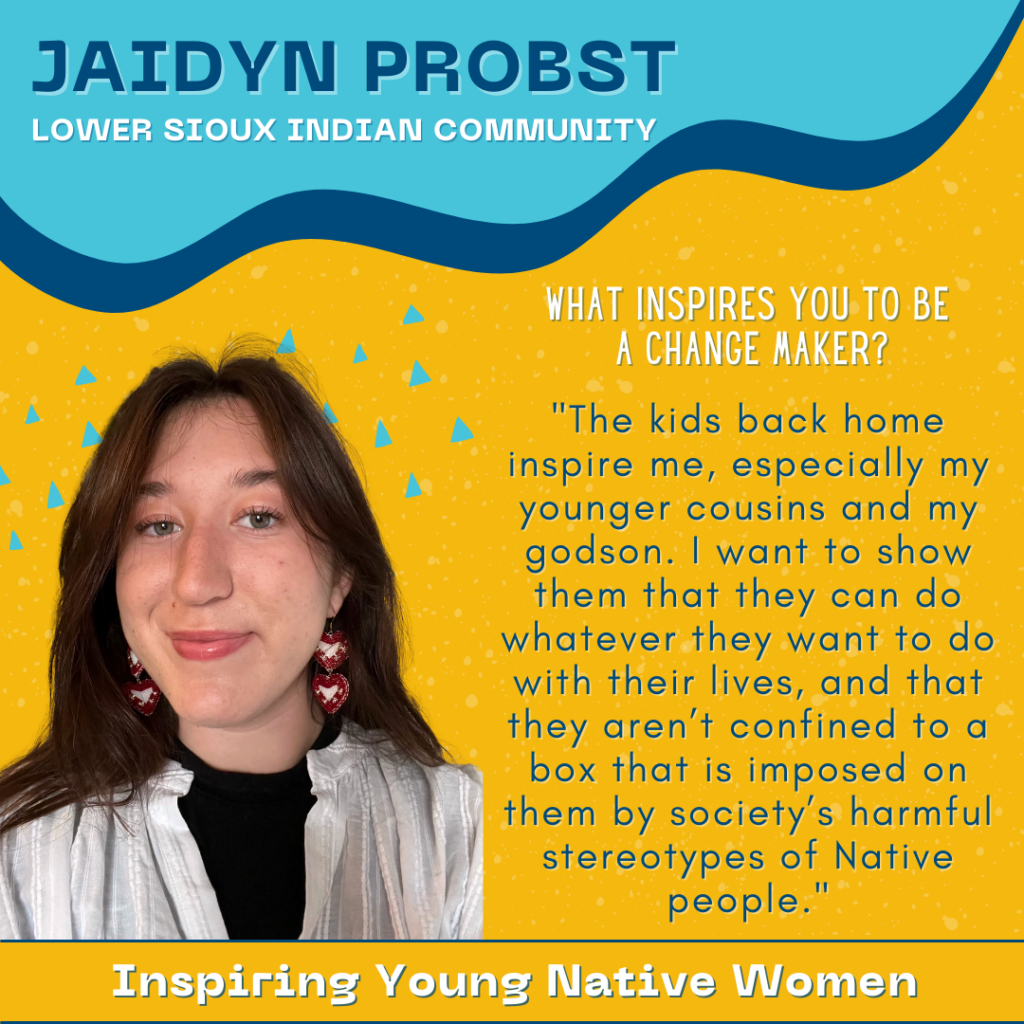
The Power of Being a Native Woman & the Role of Imposter Syndrome
June 29, 2022: Imposter syndrome can be defined as feeling out of place, unqualified, and doubting yourself.[1] I think most of us are more susceptible to imposter syndrome than we think, but at the same time the feeling of doubt is a common sensation. As Native women, we enter spaces where we feel like we do not belong, because those spaces were not built for us to belong.
I am someone who thinks they have it all figured out, and then can read one book or watch one movie and decide to adjust their whole life plan. On this journey of discovering what I want to do with my life and my education, it’s become abundantly clear how many spaces are terrifying to walk into and be a part of as an Indigenous woman. Going to college without knowing anyone and moving across the country was a position that no one in my high school graduating class was in. I learned that sometimes you truly have to become an advocate for yourself, especially because your competitors might very well have someone being an advocate for them. Fear and imposter syndrome is something that holds Native girls back, and something that has held me back.
With that being said, I do feel like every speaking engagement, every application, and every professional situation where I have felt anxious or out of place has turned out to be an experience that I end up valuing and growing from in the future. Even if inevitably, something doesn’t turn out positive in the moment, it is slightly in human nature to look back on most things in a few years with rose-colored glasses and see the ways you have grown.
There is power in being a Native woman and being able to walk into a room with your head held high. The more of us that start walking into those spaces, the sooner we can walk in and see familiar faces, or even a set of beaded earrings across the room, which makes all the difference. I remember, and am grateful for, all the kind Native women I have met along the way and who have made walking into those rooms easier. I contemplated ending this by saying ‘keep going’, but I think about my own reaction to that phrase, and I would probably rather hear something else. Instead, I will end this and say that I am proud of anyone attempting to make a path to do what they believe they are meant to , and I wish you all the support on your way. I hope one day we meet in a space that might not have been created with Native women in mind, but a space that we have come to dominate.
Wopida tanka (many thanks)
[1]Stop telling women they have imposter syndrome. Harvard Business Review. (2021, November 22). Retrieved March 29, 2022, from https://hbr.org/2021/02/stop-telling-women-they-have-imposter-syndrome#:~:text=Imposter%20syndrome%20is%20loosely%20defined,they’re%20deserving%20of%20accolades.
Jaidyn Probst is Dakota and an enrolled member of Cansayapi (Where They Paint the Trees Red), otherwise known as the Lower Sioux Indian Community. She is a current junior at Harvard University studies Cognitive Neuroscience with a minor in Ethnicity, Migration, and Rights. At college, she is the current Vice President of Natives at Harvard College, and is also a peer advising fellow to a group of first-years.
Are you interested in writing a blog with CNAY? Visit our highlight form here or contact Communications Coordinator, Cheyenne Kippenberger at Cheyenne.Kippenberger@aspeninst.org.
